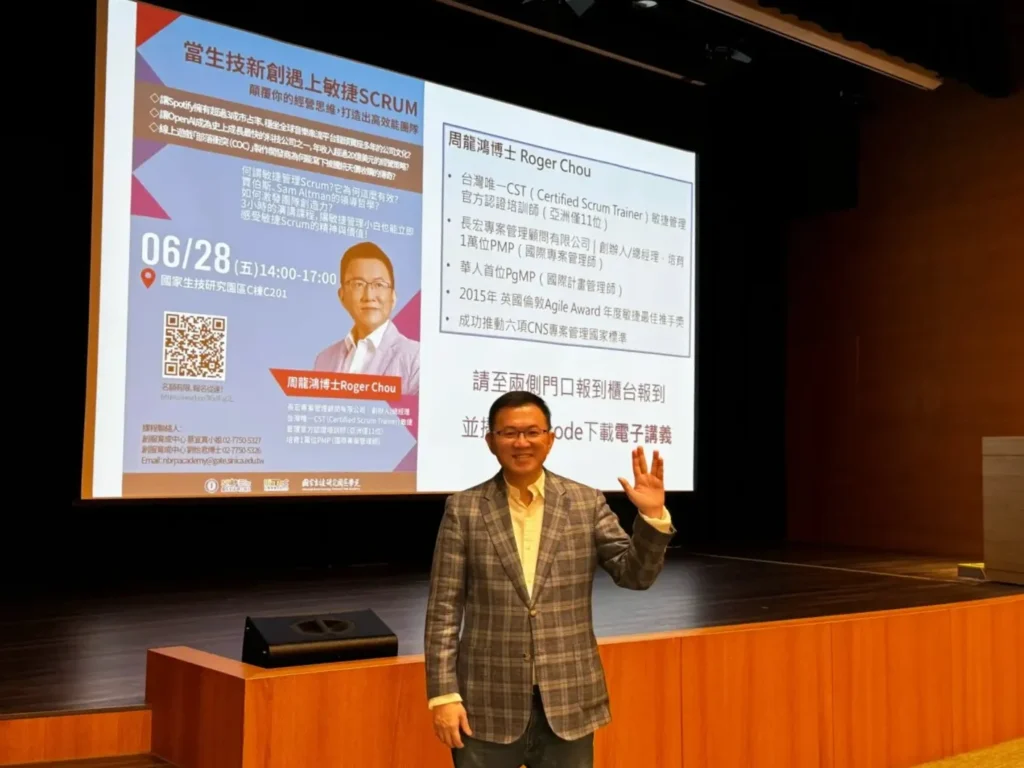In January of this year, I received an invitation to give a Speech at Academia Sinica. From the invitation to the actual Speech , it took five months. During this period, through the recommendation of Mr. Hsu Ming-Yi, Chairman of the Computer Association, Academia Sinica expressed their interest in understanding how agile methodology can be applied to biotech development.
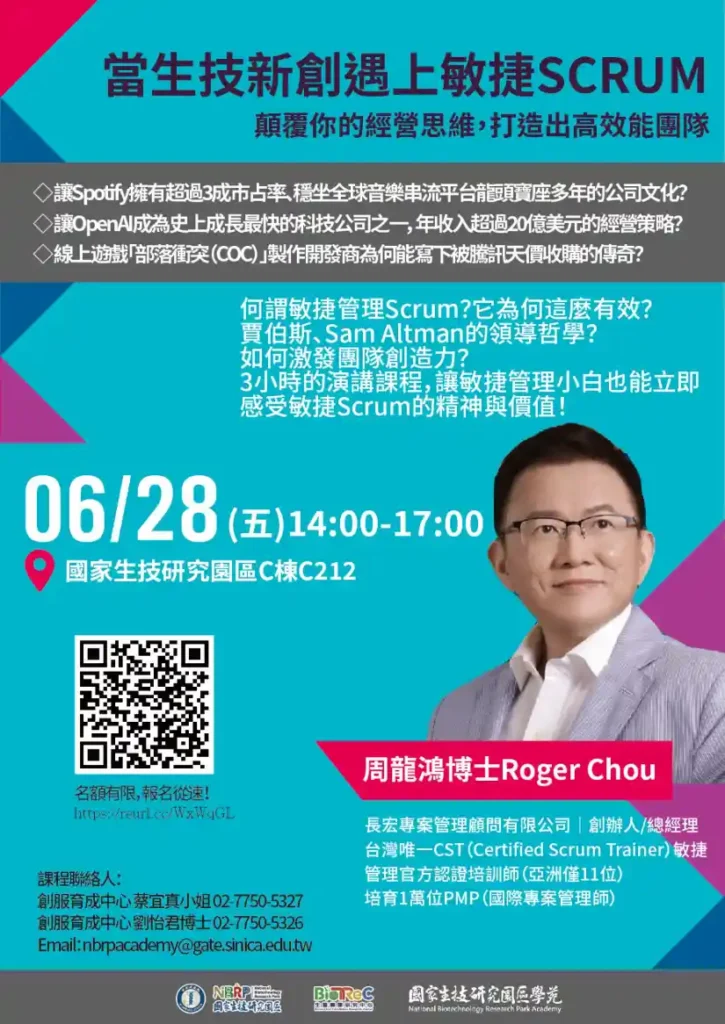
Although I don’t have direct experience using agile management in biotech projects, a president from Pfizer once attended a CSM course and successfully launched a COVID oral medication project in Taiwan within just 14 days.
Based on this successful case, I believe that agile methodology can also be effective in the biotech field, so I boldly accepted the invitation.
The academic status of Academia Sinica and the significance of the Speech
Academia Sinica is the highest-level research institute in the nation, similar to how National Taiwan University is the pinnacle of academia.
This Speech invitation holds special significance for me, as it represents a national research institution’s need for new knowledge in business management.
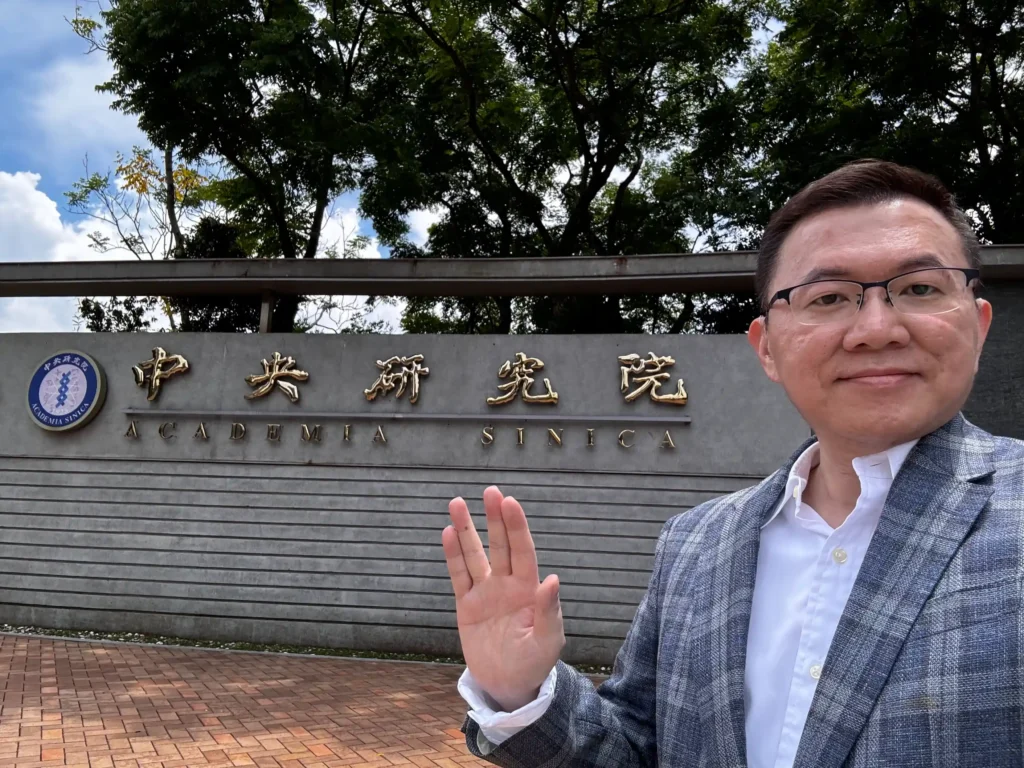
Challenges in the Speech Preparation Process
During the preparation process for the speech, Dr. Liu Yi-Jun, the organizer, although young in appearance, is actually a Ph.D. holder. She was very meticulous and concerned that the speech might be a waste of time.
We had three to four online meetings, and she even personally attended the two-day CEO CSM course.
She discovered that Academia Sinica indeed needs agile thinking. Although the bureaucratic system and rigorous academic structure of Academia Sinica make implementation challenging, she hopes to first introduce everyone to the basics of agile.
This way, interested departments or supervisors can further their learning in the future. This can be seen as planting a seed for agile at Academia Sinica.
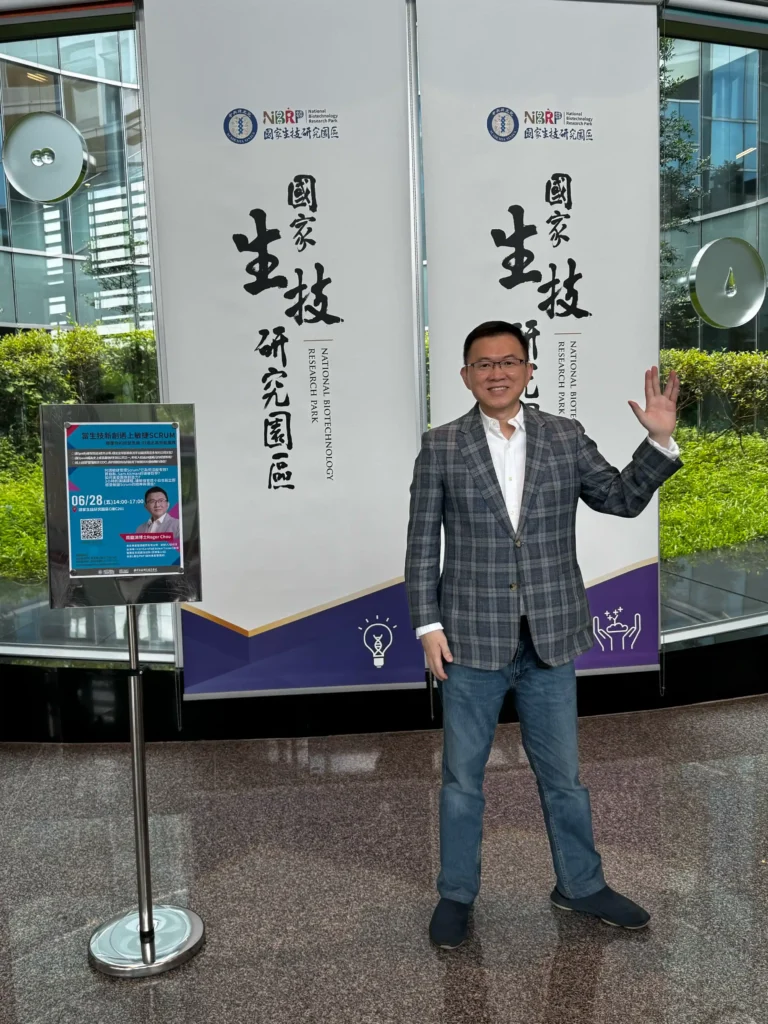
Venue Arrangement and the Day of the Speech
The speech was initially set for 100 participants, but due to the high number of registrations, Dr. Liu Yi-Jun moved the venue to a larger auditorium.
Academia Sinica is very large, and it takes a 5-minute taxi ride from the main entrance to the correct Biotechnology Research Institute building.
Initially, I went to the wrong building and took 5 minutes to walk to the Biotechnology Research Institute building, then another 5-10 minutes to reach the auditorium.
When I saw the large auditorium that could accommodate 400 people, I was very surprised. Dr. Liu Yi-Jun used red ropes to section off the back area, ensuring everyone was seated in the front part.
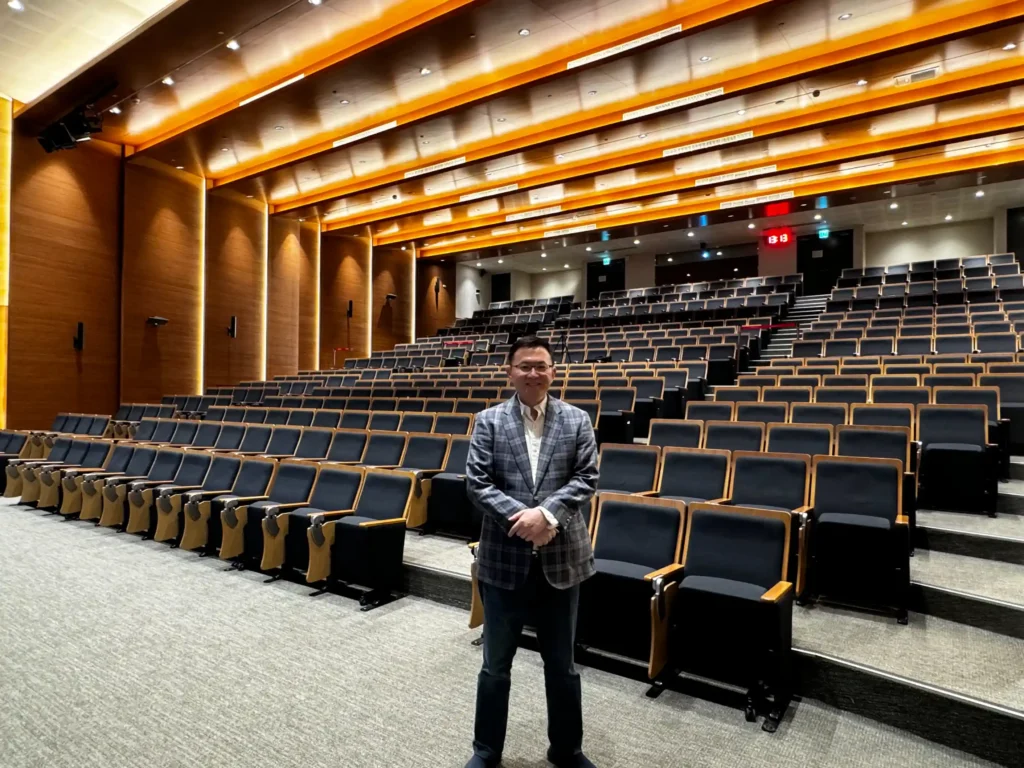
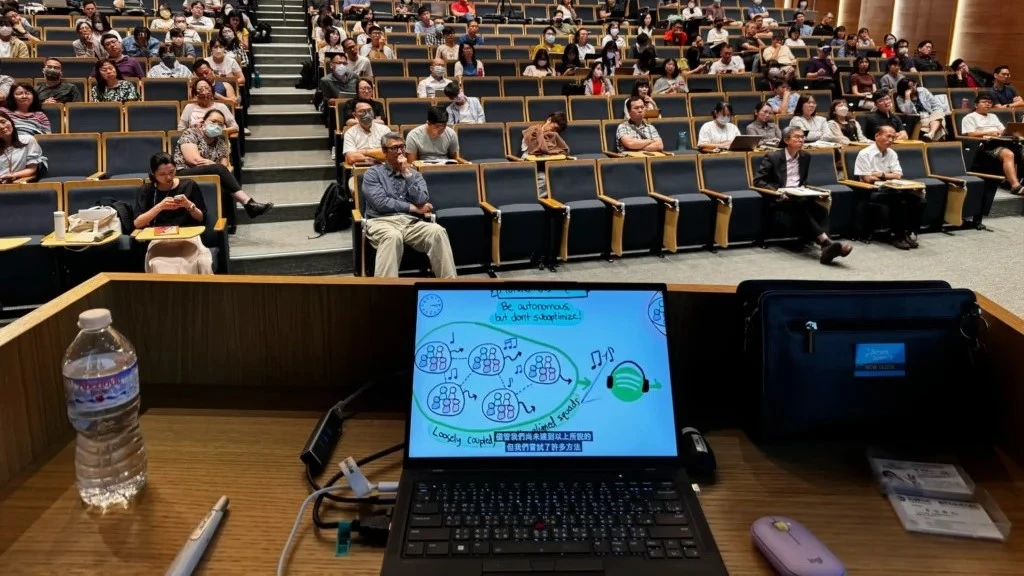
Speech Content and Reactions
On the day of the speech, I shared at least five successful cases, including software development, hardware development, biotech development, organizing large events, and using agile to develop a customer service robot.
However, when demonstrating the AI customer service robot, our AI malfunctioned and received a rating of only 2.9, which made me feel very embarrassed. Despite this, the overall speech received high praise, especially

Follow-up Developments and Future Prospects
With so many people attending the agile speech at Academia Sinica, I hope to expand the influence to the entire institution.
When they asked if the speech could be recorded, I was initially hesitant because this type of speech requires three weeks of preparation, and its value might diminish if recorded.
However, to expand the influence of agile, I had to take the risk of allowing them to record the speech. Therefore, I eventually agreed.
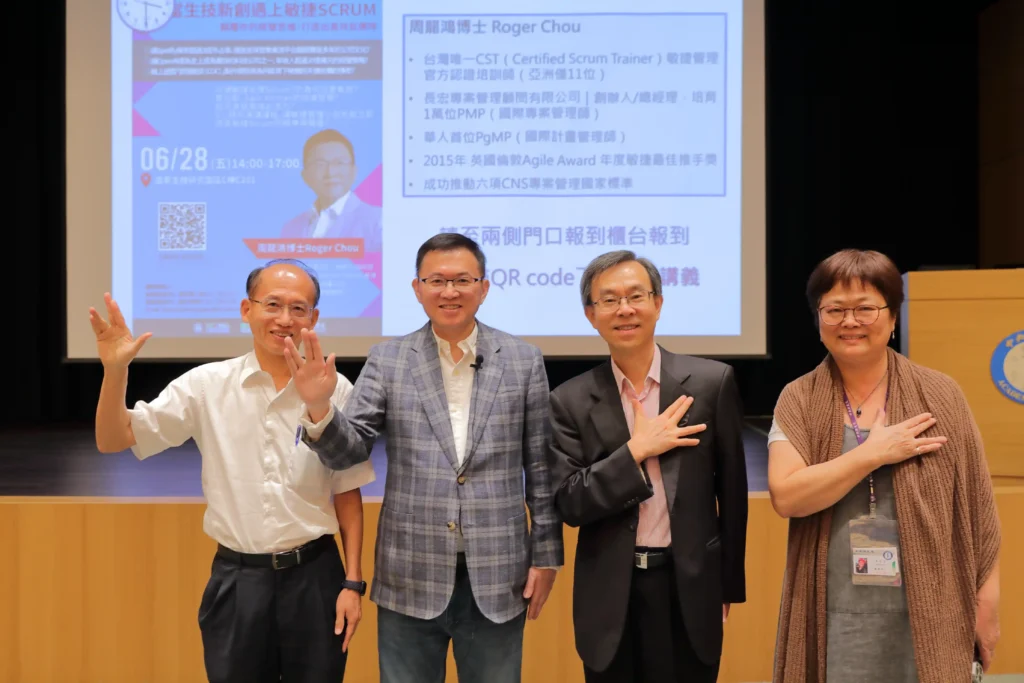
The Importance of Taking Risks and Trying New Things
I believe that taking risks and trying new things are essential in life. Most people tend to reject unfamiliar fields, but I bravely accepted the challenge to promote agile.
From not understanding biotech to having the biotech organizer learn agile, and finally speaking in an international conference hall with 400 people at Academia Sinica, this has been an honor and a milestone in my life.
The Academic Status of Academia Sinica
The following is an excerpt from Wikipedia’s description of Academia Sinica, to help everyone understand its academic status:
The researchers, associate researchers, and assistant researchers at Academia Sinica hold academic positions generally considered higher than those of professors, associate professors, and assistant professors at regular universities.
Due to the differences in research requirements, university professors who wish to transition to researchers at Academia Sinica often need to accept a lower rank (e.g., a professor might be reappointed as an associate researcher, and an associate professor as an assistant researcher).
Universities in Taiwan frequently enhance their faculty and guide graduate students by jointly appointing or hiring researchers from Academia Sinica. The title of Academician at Academia Sinica is the highest honor in the academic community of the Republic of China.
Many Academicians were elected while serving as full-time researchers at Academia Sinica or were appointed as researchers or corresponding researchers after their election.
Therefore, a significant proportion of Academicians also hold research positions within the institute.
